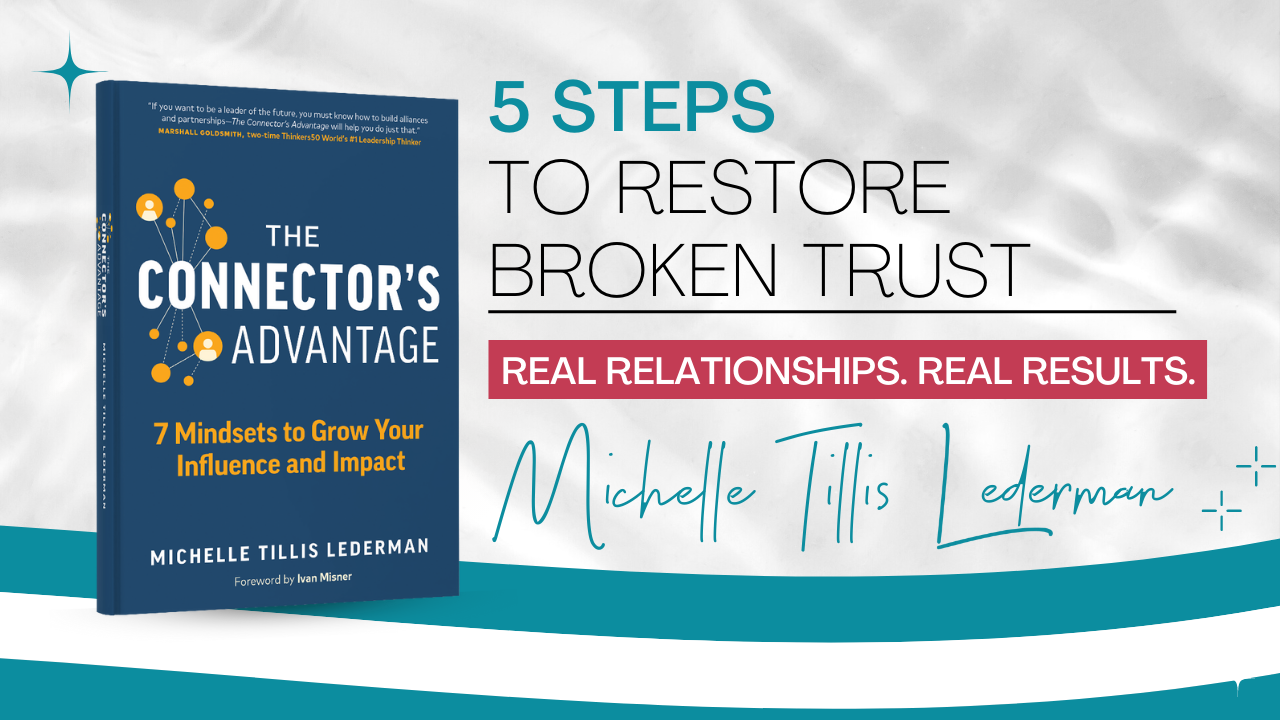When I was in business school, I had a friend that lived on the east side four blocks from me. So he and I hung out a lot, grabbed dinner, commuted to school, and became close friends. One night we were out and joking around, but at some point, it stopped being funny. He spoke to me in a way that I found unacceptable. When I asked for an apology, he refused. I left in a taxi by myself.
He called the next day and I said, “You owe me an apology.” He let me know he didn’t plan to apologize. I had a choice. A quote I recently heard made me think of this story.
“Forgiveness is letting go of the apology you will never receive.”
I chose to keep his friendship. I said, “Fine, but if you ever speak to me that way again, we aren’t friends.” He never did. We are still good friends, over 20 years later.
I spend a lot of time in my leadership programs talking about trust as the foundation of creating connected cultures. I pose the question, what is trust? I have the group define it. I have them talk about all the ways that they can consciously build trust at work, and all the ways that they unconsciously break trust. I even created a program called “Creating a Culture of Trust.“
We also talk about restoring broken trust. In that moment, my friend broke trust with me. I believe trust can be restored but it takes a desire from both sides.
For the person who did the breaking, here are 5 steps to take to restore that broken trust.
1. Acknowledge and Take Responsibility
Don’t just apologize, show you understand what you did and how it impacted the other person. Be specific and be clear. Don’t make them ask, “What exactly are you sorry for?”
2. Share the Corrective Actions You Plan to Take
Lay out how you plan to make up for your actions and how you plan to ensure it doesn’t happen again.
3. Explain What You Learned From the Incident
Show how your thinking evolved as a result of the incident. What did you learn? How has it changed the way you think or understand the situation differently? Find the growth in the situation. It immediately takes the edge off and focuses on solutions and helps you all move forward.
4. Ask for Input on Additional Actions
Don’t start by saying, “What can I do to make it up to you?” That puts the responsibility on them to fix your mistake. Once you lay out your plan, you can then ask them if there is anything else they would like to see you do. Having their input will keep them invested in the resolution, which is what you want.
5. Be Consistent and Patient
Trust is broken quickly and restored slowly. Give them time to believe your changes are permanent. If you are inconsistent, your actions may deepen the lack of trust rather than rebuild it.
When you’re on the other side of that broken trust, ask yourself if you are open to rebuilding that trust. Do you want to forgive, even if not immediately? Are you skeptical and interpreting every action now through a lens of distrust?
Sometimes you’ll get that apology, sometimes you won’t. You can’t control the other person, but you can make a choice about how you feel or interact with that person. Can you, as they say in the movie Frozen, “Let it go?
5 Steps To Restore Broken Trust
When I was in business school, I had a friend that lived on the east side four blocks from me. So he and I hung out a lot, grabbed dinner, commuted to school, and became close friends. One night we were out and joking around, but at some point, it stopped being funny. He spoke … Continued

